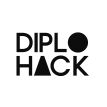Ideas for how open data and technology can improve the sustainability of food production
1. Fixing Bugs
Users: policy makers, universities, ports, shipping companies, regulators, government
Mission: Reduce the bio impact of international food trade
Objectives: Provide easy access to a database of invasive species. This can be filtered by country or commodity type and linked to a list of treatments or mitigations. Policy makers can assess risk and opportunities for regulations for each new trade
Seek to engage all stakeholders to provide a business model and more real time and operational knowledge gathering. It may be extended to record trades and map to trace any epidemiology.
Description: The app allows you to input categories such as what you want to buy and from where, and if there are any cases of diseases or pests being present, they are flagged upIt would also be integrated with a legal database telling you what tariffs would potentially be levied, and what to do to control the problem (quarantine etc).
2. Policy Impact Testing App
Users: policy makers
Mission: Tested impact of food sustainability policy
How it works:
-Select the category of your policy (eg. Water use)
-Select region where it is to be implemented
-Select KPIs to measure the impact of the policy:
- productivity, prices, consumption rate, etc.
-The policy goes out to a distributed network (NGOs, companies, actual producers) to input real data on their KPIs
Users: policy makers
Mission: Tested impact of food sustainability policy
How it works:
-Select the category of your policy (eg. Water use)
-Select region where it is to be implemented
-Select KPIs to measure the impact of the policy:
- productivity, prices, consumption rate, etc.
-The policy goes out to a distributed network (NGOs, companies, actual producers) to input real data on their KPIs
3. CropCheck.com
Users: Farmers, plant health offices, policy makers
Mission: To respond to reportds of crops problems and demonstrate the value of sharing data
Objectives
–Collect outbreak data
–Determine extent of problems in the network
–Prioritize plant doctor work
Description: this app will convince farmers to share data. Instead of immediately burning their crops if a problem arises, policy makers would incentivize them to share important data. In return, staff will be sent to investigate and give free advice. The app also sends alerts to farmers in the local area asking them to check their crops
Users: Farmers, plant health offices, policy makers
Mission: To respond to reportds of crops problems and demonstrate the value of sharing data
Objectives
–Collect outbreak data
–Determine extent of problems in the network
–Prioritize plant doctor work
Description: this app will convince farmers to share data. Instead of immediately burning their crops if a problem arises, policy makers would incentivize them to share important data. In return, staff will be sent to investigate and give free advice. The app also sends alerts to farmers in the local area asking them to check their crops
4. Food Policy Lap
Users: policy makers, experts, public
Mission: Provide more grounded and solid evidence and rounded input to the drafting of policy documents
How it works:
–Upload the document on the app/website
–Invite experts and networks to comment on the document
–Tag documents and links to database of evidence information
–Plug in to social listening tools to gather what the public is talking about on these topics
Users: policy makers, experts, public
Mission: Provide more grounded and solid evidence and rounded input to the drafting of policy documents
How it works:
–Upload the document on the app/website
–Invite experts and networks to comment on the document
–Tag documents and links to database of evidence information
–Plug in to social listening tools to gather what the public is talking about on these topics
